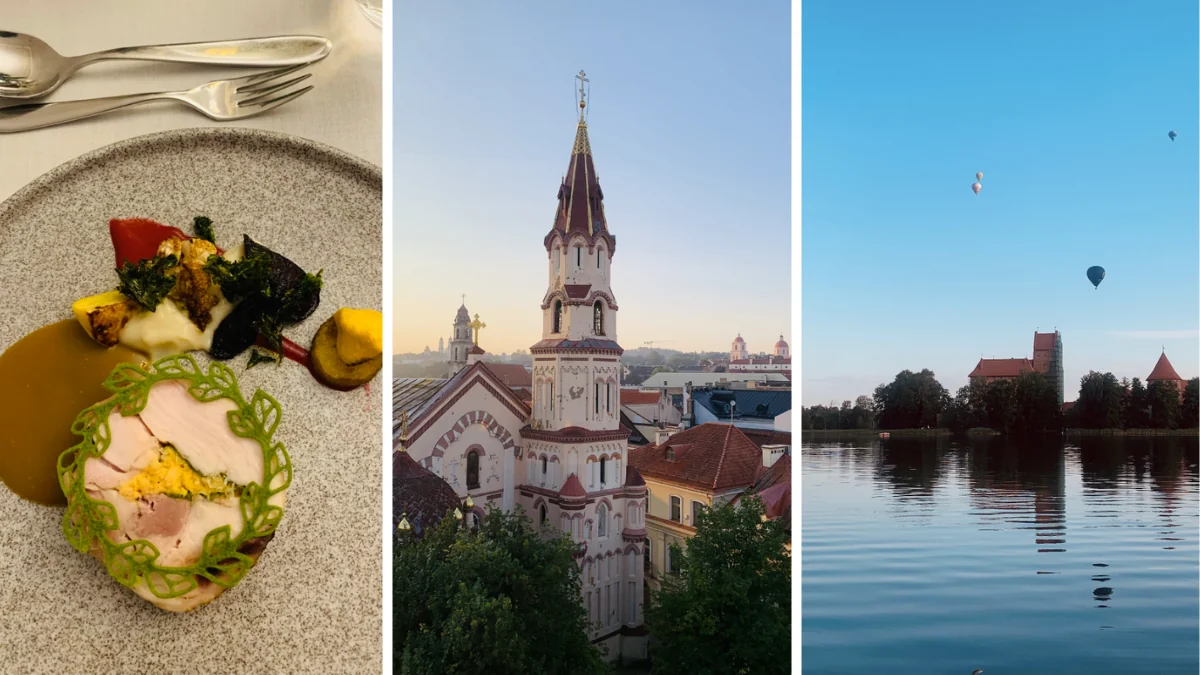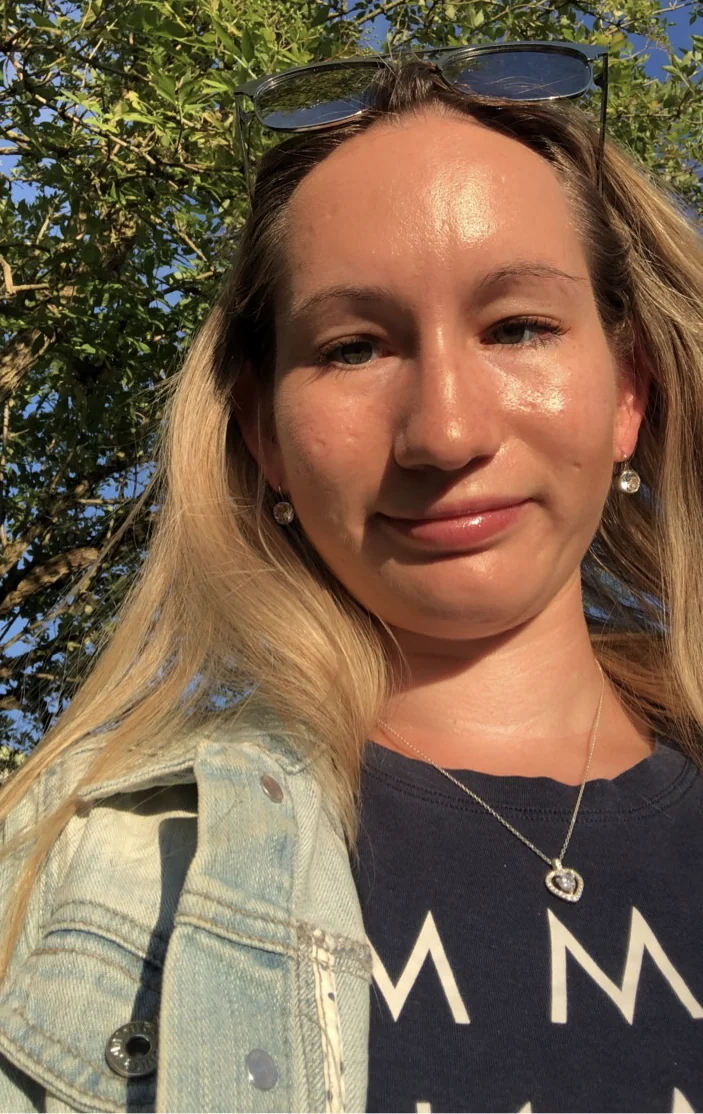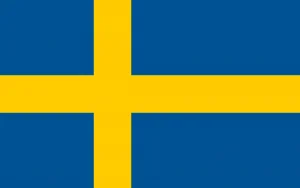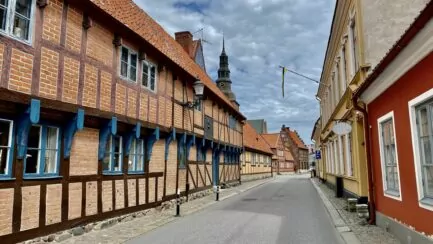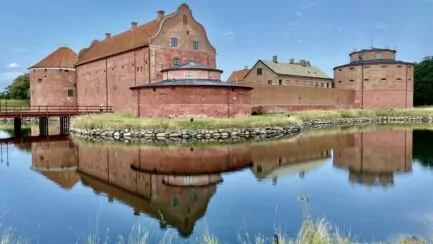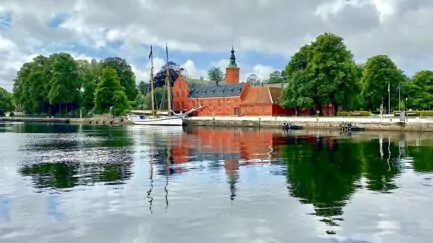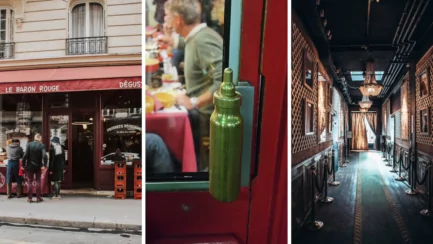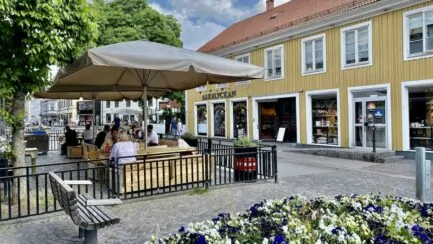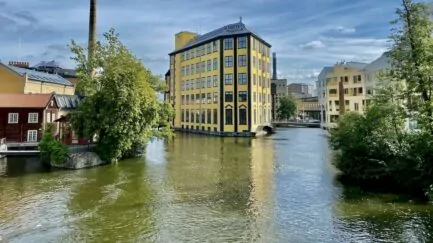Table of contents
Guest writer: Roksana Corswant
Do you want to go on a trip full of culture but not too expensive or too far away? Then Lithuania could be a good destination for you. With beautiful nature, cultural cities and many attractions, Lithuania is a great destination for the curious traveller.
The country is located in the Baltic region, bordering Belarus, Russia and Latvia. The capital Vilnius is just a short drive from the border with Belarus. It is also relatively easy to get around the country, as the infrastructure is well developed throughout the Baltics.
The official language is Lithuanian, which is very difficult to understand without prior knowledge, and many people also speak Russian. After its independence, Lithuania joined the EU in 2004, but even then Russian has been taught in many schools. Today, however, English is the first foreign language in schools and the younger generation born in the late 1990s often has a good command of English.
In the presidential election on 26 May this year, President Nauseda was re-elected with unusually high voter support.
The capital, the centre of the country
It is at the end of September that I go to Lithuania's capital Vilnius after a smooth flight from Gothenburg with a stopover in Stockholm. From the airport to the centre of Vilnius it takes about 20 minutes in light traffic.
In the centre of Vilnius, there are numerous cafés, restaurants and outdoor cafés. It's 24 degrees centigrade and although it's only morning, the cobbled streets are teeming with people. It is a very green city, with several walking paths through lush vegetation. Bicycles can be hired in some places, but public transport is also available at low prices.
I am staying at a hotel Pacai in the old town which has high standards. In the old town are old style buildings, with several churches. The Swedish embassy is also located in the old town. There are also many shops selling traditional crafts and restaurants serving traditional home cooking.

An unusual dining experience
We, me and another Swedish journalist meet up for dinner at the Ertilo Namas restaurant in the centre of Vilnius. This restaurant has a different concept - it serves food with a historical theme. Journalist Anna Wahlgren and I joke that this is like the Lithuanian version of our Swedish TV programme "Historieätarna". We get several small dishes, and the waitress explains the story behind the dish. You get a history lesson while enjoying food from the past.
- We usually have guests here from Poland. They usually go to Lithuania for holidays. But we also have Lithuanian guests who come here to eat, usually to celebrate something," the young waitress tells me.
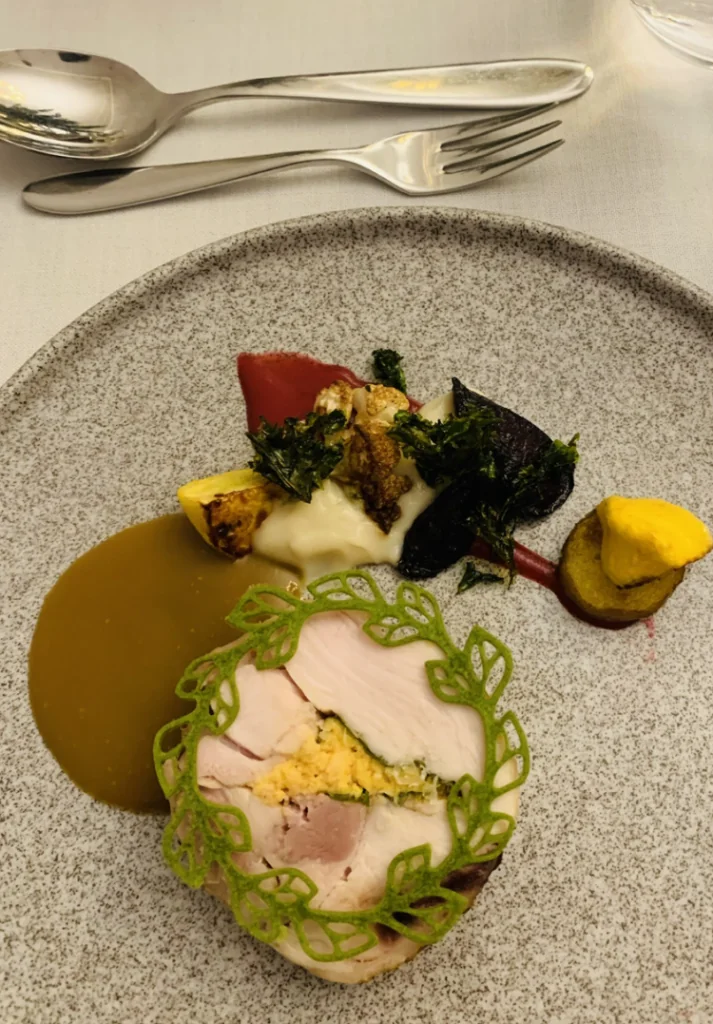
Tour of the city
The next day, Anna and I meet up with our guide, Jurate Terleckaite, who is also a journalist. She shows us around Vilnius' many churches and small shops. Then we have lunch at the Grey restaurant, where we order traditional Lithuanian and Russian food. Jurate tells us that many businesses in Vilnius are still struggling to recover from the Covid-19 pandemic.
- Against all odds, a small shop selling pastries and traditional artworks here in the old town managed to survive the pandemic. They were smart, and started selling through the window of the shop. That way, no customers came into the shop," Jurate explains enthusiastically.

The food tastes very good, but we then have to move on and drive towards the town of Trakai, and its famous attraction - the castle. The drive takes around an hour, depending on the traffic. Lithuania has heavy traffic with a relatively high risk of accidents, but the journey is surprisingly smooth and the motorway and the rest of the infrastructure is well-functioning and serves its purpose.
When we arrive in Trakai, we turn into a huge lake. It is now evening and the sky is filled with hot air balloons. At the lake you can rent canoes, kayaks or go on a boat trip. We go on a trip out on the lake at sunset and the captain of the smaller motorboat tells us that it is an electric boat, with solar cells on the roof.

We eat pies and look at the huge castle that looks more like a castle in the middle of the lake. Here on the lake, our guide tells us that Lithuania is famous for kayaking, and right here in Trakai there are many elite athletes who paddle. There is also a national park here, where you can walk in the forest and enjoy the beautiful nature. Boat trips can be booked from early spring to October. If the lake freezes over in winter, you can also go ice skating here.
Before heading back to Vilnius, we will have dinner at the Apvalaus stall klubas restaurant, which is in a scenic location overlooking the castle and the lake.
In the car on the way back to Vilnius, Jurate explains that Lithuania has several different ethnic groups. In recent years, it has received refugees from Belarus, Ukraine and especially Kyrgyzstan. Of the countries that were part of the Soviet Union, only the Baltic States can be considered democracies. But there are challenges. Wages are low and Lithuania is high on the list in the EU for citizens moving to other countries for work. Lithuania is a safe travelling destination according to the Institute of International Affairs.
- "Many tourists come here to go to the spa or to watch basketball," says Jurate. She goes on to say that Lithuania is an excellent basketball country and has many good players who compete internationally. "When we get back to the hotel, I sleep incredibly well after the long day.
The next morning we get back in the car and take a longer drive to the village of Kernavė, where we look at several churches and the beautiful landscape that has not yet turned raw and cold. It is rolling green and Jurate shows us into different churches. She used to attend mass in one of the many Russian Orthodox churches in Vilnius, but now often visits a Catholic one. As we enter one of the churches, she tells us that Napoleon was in this particular church.
- Look at the floor! It was when he rode into the church on his horse that the floor was destroyed there!", she shows. Indeed, traces of hooves are visible in the beautiful flooring.
Lithuania is predominantly Catholic, and the Pope has visited several times. During the Soviet era, many churches were turned into storage rooms or museums. But after independence, religion has become important again. Nuns and monks in the Catholic Church are much more common and more numerous than in Sweden.

A visit to Kaunas
After the visits to the churches we continue towards the city of Kaunas. It is one of the larger cities in Lithuania, but much smaller than larger Swedish cities like Linköping. The architecture of the houses is very colourful here, and many of the houses are from the 17th century, some even older.
Kaunas doesn't have as many shops as Vilnius, but there are plenty of nice outdoor cafés and good restaurants. We check into our hotel and I go down to the gym. The standard of the hotel is good and it is also located in the centre of the city.

Modern Street Art
As evening creeps on, Jurate shows us a courtyard that attracts many tourists - the reason people flock to this particular alley is because there is street art. There are both murals and smaller paintings, along one wall there are paintings of people in the 19th century. It is cosy on the cobbled streets.

This day ends in a restaurant where we eat oysters from Kaliningrad and a menu of small dishes. Around us in the restaurant there are people celebrating birthdays and other festivities.
During the last day I stroll around, (back in the capital), on my own and walk in parks, visit a mass in one of the Russian Orthodox churches, and go to cafes. For those who like to eat, there is an incredible variety of restaurants and different cuisines here. I order a burger from a street food stall, sit in the sun and enjoy the last few hours in Vilnius before heading to the airport to go home.
Want a long weekend that doesn't cost the earth? Then I would recommend Lithuania. There are many sights, museums and an incredible cultural heritage. With its rich history and small area, you can get many experiences in just one long weekend.


